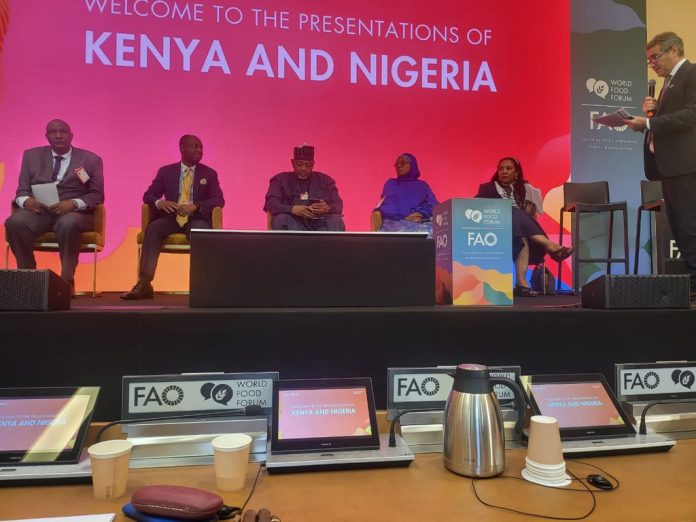Nigeria’s vast agricultural potential took center stage at the Investment Forum held in Rome, Italy, where a comprehensive presentation outlined the country’s opportunities for foreign and local investment. With a population of 211 million and a GDP of approximately $430 billion, Nigeria remains a key player in Africa’s agricultural sector, contributing 25.58% to the nation’s GDP in 2022. The presentation focused on several key areas, emphasizing both the potential and the challenges facing the sector.
Investment Potential in Key Crops and Sectors
1. Tomato: A total of $869.4 million has been earmarked to enhance tomato productivity and minimize post-harvest losses. This investment will focus on irrigation, the development of processing facilities, and the multiplication of high-quality seeds. Key states targeted for this project include Kano, Bauchi, and Borno, where tomato farming holds significant economic promise.
2. Cassava: Nigeria is already a global leader in cassava production, and a $382.2 million investment will focus on improving yield and reducing losses. The plan includes the establishment of processing units, research support, and the introduction of value chain financing. Ogun, Oyo, and Anambra states will be the primary beneficiaries of this initiative.
3. Maize: With a $1 billion investment, Nigeria aims to substantially increase maize production and processing capacity. This initiative will benefit Katsina, Kaduna, and Oyo states, where maize is a staple crop with high demand in local and international markets.
4. Dairy: The country’s reliance on dairy imports will be addressed through a $476.8 million investment. This program aims to improve dairy productivity, enhance processing capabilities, and promote pasture management. Bauchi, Kwara, and Oyo states are the primary focus areas for this investment.
5. Fisheries and Aquaculture: With a production gap in fish farming, $399.8 million will be dedicated to improving the sector. The initiative is set to target states like Ebonyi, Anambra, Ogun, Kwara, and Oyo, with a goal of bolstering local fish production and closing the supply gap.
Supporting Policies and Incentives
In addition to the direct investments in specific crops and sectors, the presentation also highlighted Nigeria’s commitment to creating an enabling environment for investors. Policies aimed at encouraging investment include tax breaks, incentives for foreign investors to repatriate profits, and local content incentives. These measures are designed to attract more foreign direct investment (FDI) and promote sustainable growth in the agricultural sector.
Hand-in-Hand Initiative
The “Hand-in-Hand Initiative,” a cornerstone of Nigeria’s agricultural development strategy, was also discussed. This program aims to enhance livelihoods, build resilience among smallholder farmers, and develop robust value chains for key crops, including tomatoes, cassava, rice, maize, dairy, and fisheries. The initiative is designed to foster sustainable agricultural practices while promoting economic growth.
A Vision for Sustainable Development
The overall investment plan anticipates $314 billion in development financing. This infusion of capital is expected to generate significant economic and social returns, including job creation, income growth, and reduced carbon emissions. The presentation underscored the importance of collaboration between the public and private sectors to achieve these ambitious goals.
As Nigeria continues to position itself as a global leader in agriculture, the outlined investments are set to strengthen the country’s food security, stimulate economic growth, and create lasting benefits for millions of Nigerians.




